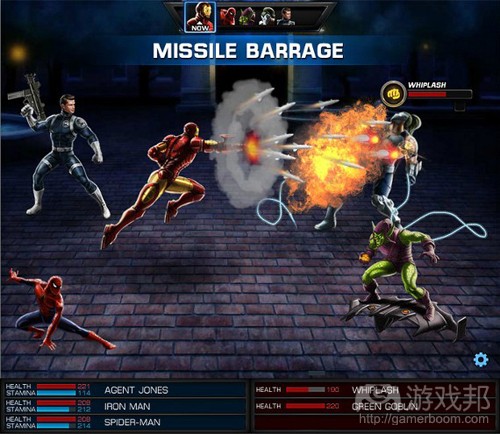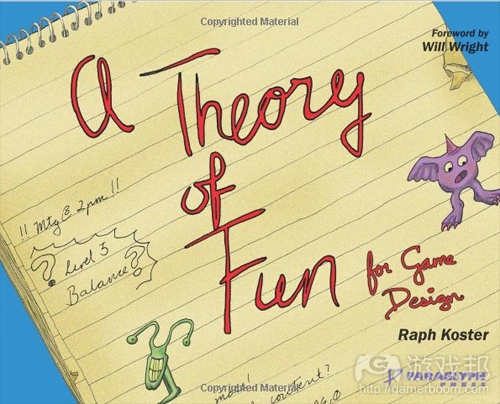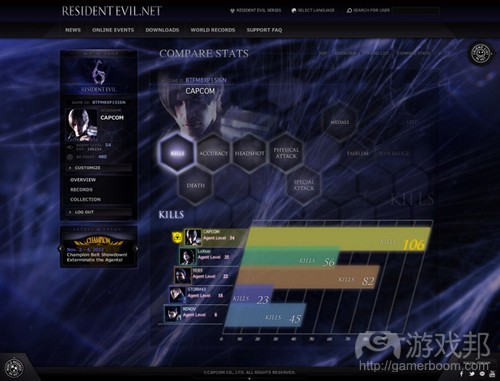每日观察:关注用户玩游戏的“非趣味性”因素(10.10)
1)分析公司Piper Jaffray最近针对7700名美国高中生的调查结果显示,尽管传统掌机游戏市场份额在过去数月中持续下滑,但青少年群体对这类游戏依然兴趣浓厚。
这些用户不但喜欢玩零售类游戏,而且对数字下载游戏也不乏兴趣。报告指出,53.3%青少年玩家认为下载掌机游戏比在零售店购买游戏更为方便。
但值得注意的是,虽然这些用户欢迎数字下载游戏,但他们对在线社交游戏并不感兴趣。今年春季的调查结果显示,有25.3%青少年曾玩过社交游戏,但Piper Jaffray最近调查却发现这一比例已降至17.4%。
2)据games.com报道,Playdom元老、Goko高管David Rohl在日前GDC Online 2012大会上表示看好Facebook硬核游戏发展前景。
他分析称《Marvel Avenger Alliance》这款游戏的成功多于失败之处,而Kixeye及Kabam等开发商的运营表现也可以证明Facebook硬核游戏在传统游戏玩家中颇有市场。
Rohl还指出,创新性总会“战胜”换皮游戏,因为硬核玩家总会将克隆或山寨游戏拒之千里之外。
3)据gamasutra报道,《ARMA 2》的模组DayZ开发者Dean Hall最近表示,模组团队也需要能够把握项目方面的领导,以便大家各司其职。
他举例称苹果就是一个成功典型,该公司就是在乔布斯的领导下实现巨大的创造性。他称自己负责DayZ的美术、编码和制作环节,所有的决策都需经过他的认可。他认为许多模组甚至是大型游戏却并未采用这种方式,它们是集体拍板的游戏,因此他认为这类游戏需靠市场营销来取胜。
4)据games.com报道,Playdom设计副总裁Raph Koster在最近的GDC Online 2012大会上发言回顾了游戏趣味性理论的10年历程,并指出人们玩游戏除了为了获得乐趣之外,还会追求4个“非趣味”元素:
*练习:人们玩游戏只是为了熟能生巧;
*故事:这一点最适用于最低限度的游戏;
*冥想:重复操作;
*安慰:玩游戏只是为了寻找解脱。
5)据insidesocialgames报道,《生化危机6》最近上架后立即热销,并推出了其专有社交网站ResidentEvil.net,支持玩家彼此互动,追踪自己的游戏情况,并从中赢取可用于游戏中的道具。(本文为游戏邦/gamerboom.com编译,拒绝任何不保留版权的转载,如需转载请联系:游戏邦)
1)Teens looking for console games, not social titles
By Tom Curtis
While the traditional console market has seen some notable declines at retail over the past several months, it remains an extremely prominent market for teen consumers, who are still very keen on purchasing major high-budget releases.
Analyst firm Piper Jaffray recently surveyed some 7,700 high school students across the United States, and found that — despite its claims from earlier this year — teens are still very interested in traditional console games. NPD reports might suggest the console market is in decline, but for male teens in particular, the firm says that space is still as exciting as ever.
And these consumers aren’t just interested in the retail market; they’re also embracing digital formats. According to the report, 53.3 percent of teen players already feel comfortable downloading a big-budget game right to their console rather than purchasing it at retail.
That also bodes well for developers releasing downloadable content for their games, as younger players are already primed to purchase their game content online.
But while teens are embracing digital games as a whole, they’ve been losing interest in the online social space. This spring, 25.3 percent of teens reported that they played games on social networks, but for Piper Jaffray’s most recent fall survey, that figure dropped to 17.4 percent.
In the months ahead, Piper Jaffray expects big-budget games like Call of Duty: Black Ops II, Madden 13, and Assassin’s Creed III to be among the most popular titles for U.S. teens. If you’re working for a major console developer, now’s a great time to launch games for that younger demographic, but social and casual game developers might want to be a bit more cautious.(source:gamasutra)
2)Playdom vet: ‘There’s always room for hardcore games’ on Facebook
by Joe Osborne
A design veteran of Gardens of Time house Playdom is more bullish on the “hardcore” Facebook games trend than you might think. During his and Playdom VP of game design Steve Meretzky’s annual panel at GDC Online 2012 in Austin, Tex, Playdom veteran and Goko’s David Rohl expressed interest in hardcore (i.e. “mid-core”) games on Facebook.
“There’s always room for hardcore games,” Rohl said during the second point of their panel. The storied designer then went on to analyze the successes and failures of Playdom’s own core-focused release, Marvel Avengers Alliance. Admittedly, there are more successes than failures with that game, and developers like Kixeye and Kabam can attest to the possibilities of games on Facebook geared toward the traditional gamer.
Rohl went on to mention that innovation “outpaces” re-skinning other games–likely because “hardcore” gamers can sniff out a clone or copycat game from a mile away. Hardcore games might monetize far better for fewer players, but it will be interesting to see how far this trend go, as in farther than we’re seeing with games like Dungeon Rampage. As far as potential, highly speculative trends go, color us excited.(source:games)
3)Lack of a single vision can stall development on mods
By Eric Caoili
“The biggest problem is a lack of single vision. … I think that, with mods, the reason a lot of them don’t get released is because they were team efforts.”
- Dean Hall, creator of popular ARMA 2 mod DayZ, argues that mod teams need leaders who will decide the project’s direction and get everyone to fall in line.
He points to Apple’s success as an example, as the company was able to deliver a tremendous amount of innovation under the guidance of Steve Jobs. Though the late CEO was often seen as demanding, Hall says he knew what needed to get done.
“I think one person has to sit down and take the responsibility like I did,” Hall told VG247, noting that he did the art, code, and production for DayZ. He also paid for the project, so all of the decisions came down to his approval.
“Everybody knew that, so they would accept it if I said, ‘Nope, we’re doing things that way.’ I think that’s really important, and I think a lot of mods or even big games [don't] do that.
They are games by committee, and I think those games depend on marketing. ” (source:gamasutra)
4)Playdom Design Veep: Fun is the same thing as a drug hit
by Libe Goad
Breaking news: Playdom games are getting you high.
“Fun is the same thing as a cocaine hit,” says Playdom Design VP Raph Koster in his opening talk at the Game Developers Conference in Austin, titled A Theory of Fun: 10 Years Later.
Koster revisits a keynote talk that he gave a decade ago on the same topic, supplementing it with new research on play and games that have appeared in the meantime.
There were a myriad of interesting facets to the talk, but one of the more interesting points that he brings up is that people play games to have fun, but also for the following “non-fun” reasons.
Practice – Playing something just to practice it
Story – Something that usually works best with minimal game
Meditation — Repetitive action
Comfort — Playing a game that is comforting and not fun
These reasons for playing games largely matches up with surveys that find people who play casual games, many of them women, who play games to kick back and relax. So when you take a look at what types of games that Playdom keeps churning out — like the hidden object Facebook game Gardens of Time — it’s likely that you’ve already experienced some of these fun theories for yourself.
Koster’s talk is contained in book form, A Theory of Fun for Game Design, so if you want to spend your next night out talking about things like “ludonarrative consonance,” this is the book for you. (source:games)
5)Resident Evil 6 launches with its own social website — Resident Evil 6 hit store shelves this week and is reportedly selling like hotcakes. For the first time ever, though, players can visit ResidentEvil.net and socialize with other gamers, keep track of their in-game statistics and possibly win in-game items.(source:insidesocialgames)












































 闽公网安备35020302001549号
闽公网安备35020302001549号